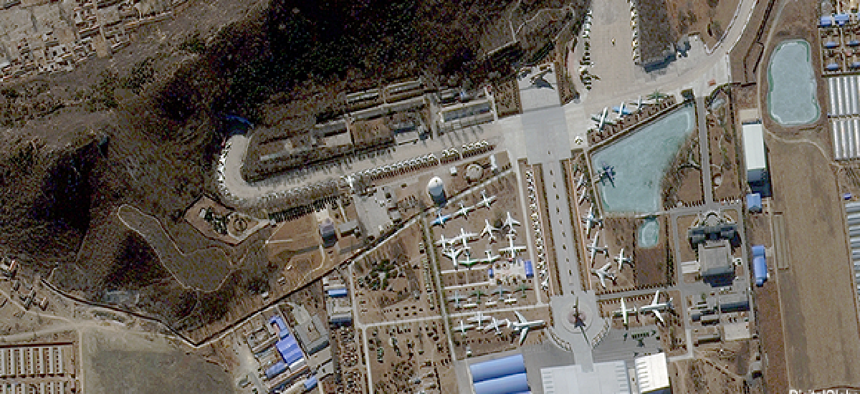Satellite imagery provider gets nod to sell higher res images


Connecting state and local government leaders
U.S. intelligence organizations are supporting DigitalGlobe's bid to sell higher-resolution satellite images, which would put crisper pictures in more hands.
DigitalGlobe, a Colorado-based provider of high-resolution satellite images, aerial photos and geospatial content, is awaiting a decision from the Commerce Department on whether it can amend its license to sell satellite imagery at a resolution of better than 0.5 meters to non-U.S. government partners, a company representative said.
Right now, the government restricts commercial satellite companies from selling images with a resolution of less than 0.5 m to non-government buyers in order to maintain an intell edge. But Director of National Intelligence James Clapper recently told attendees at the GEOINT symposium in Tampa, Fla. that U.S. intelligence agencies had agreed to allow commercial providers to sell higher resolution imagery but that the decision still needed approval by other agencies.
“DigitalGlobe applied nearly one year ago for a license to increase the resolution of its imagery from 50 (centimeters) to 25 cm,” according to an April 15 Reuters article. “The difference would allow observers to discern not just a car seen by a satellite, but also the make of the car.”
DigitalGlobe already has the capacity to produce the higher-res images. Two of its five satellites currently in orbit – GeoEye-1 and WorldView-2 – can collect such images, the representative said. A third bird, WorldView-3, set to launch in mid-August, will also be up to the task, according to the company, which currently provides imagery at resolutions ranging from 0.82 m to 0.41 m.
DigitalGlobe’s constellation of satellites has provided more than 4 billion square kilometers – more than 27 times the Earth’s land surface area –in imagery and 63 petabytes of data, the representative said. Images can often be delivered in less than two hours after capture.
But advancements by foreign space imagery companies “have raised concerns DigitalGlobe could lose market share if it is not allowed to compete on high resolution images,” according to Reuters. The company, founded in 1992 as WorldView Imaging, is a leading domestic provider of imagery, with revenues of $613 million in 2013. That number is expected to grow to $645 million this year, according to Space News.
The company has had a long relationship with defense and intelligence customers. For example, in 2010, it entered into the 10-year, $2.8 billion EnhancedView contract with the National Geospatial-Intelligence Agency. Under the service-level agreement, the company must meet operational performance requirements of the WorldView satellite constellation and related ground systems.
“DigitalGlobe provides high-quality imagery that is shareable and unclassified, making it easier and more effective for warfighters and first responders to use the imagery to its maximum benefit,” the representative said. “DigitalGlobe allows partners to focus on their core competencies, helping the entire intelligence community realize efficiencies in operations.”
Anyone with a U.S. government e-mail address has access to DigitalGlobe’s imagery, the representative added. MyDigitalGlobe, a Web-based application that lets users view and download imagery within their subscription, gives users access to 200 million square kilometers of satellite imagery and now supports most of the company’s daily collections, adding about 1.2 million square kilometers of new earth imagery every day.
“Those supporting U.S. government missions can use the MyDigitalGlobe platform to quickly find their areas of responsibility, review available imagery for that location and integrate it into their workflow using tools like Google Earth and [Esri] ArcGIS,” the representative said.
Imagery costs vary and start at several hundred dollars per image for archived shots, the representative said. For more custom needs, the company has satellite tasking options. “The price to task one of DigitalGlobe’s satellites depends on a variety of customer requirements, including the priority of the request, collection window, availability of satellites, cloud cover, etc.”




